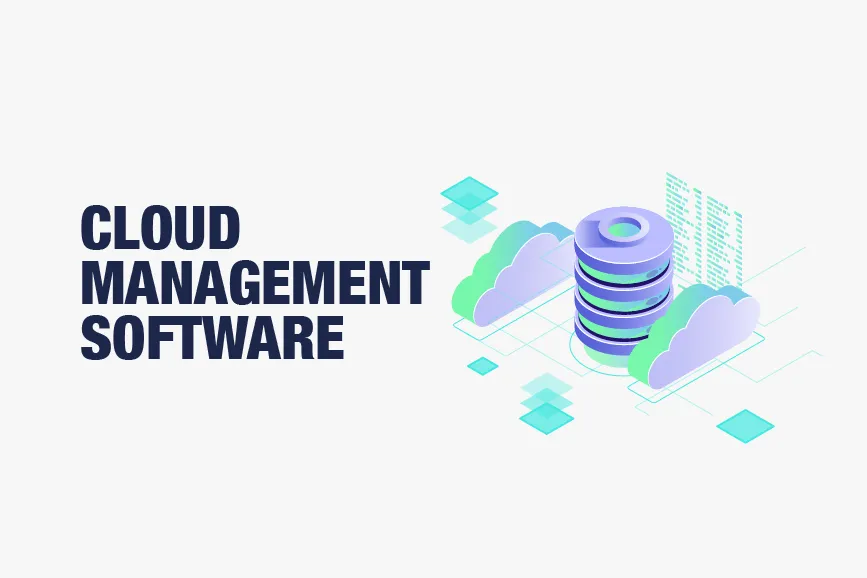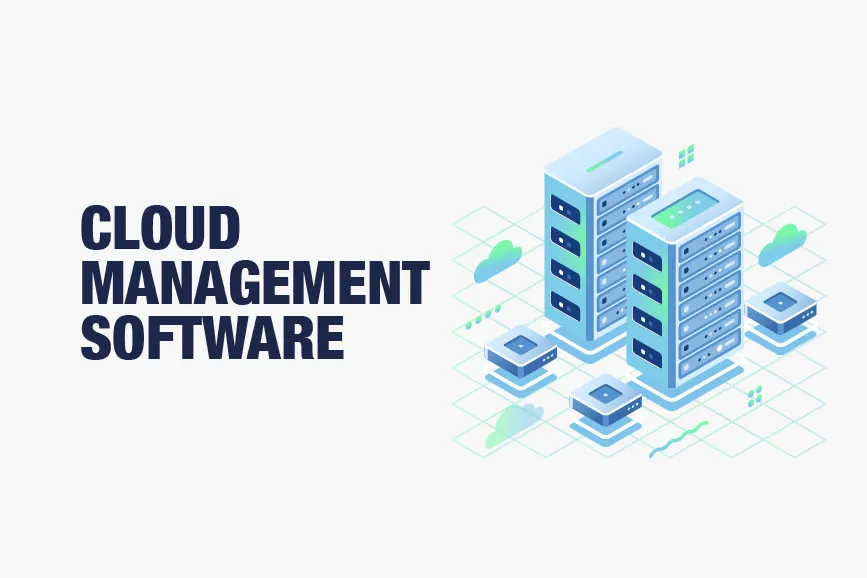Regardless of the industry segment and the size of the business project, financial management always requires the most effective solutions. Without advanced technology, errors and rising operating costs are inevitable. According to expert forecasts, the global share of the cloud-based financial management software market will grow seven times over the next seven years ─ up to $85 billion. And a significant part of that money will be invested in the financial sector
Today’s cloud solutions help facilitate processes as much as possible and visualize the workflow parameters that require immediate intervention. They determine the transparency and value of transactions that determine the success of your enterprise. In this article, Owlab, a company with extensive cloud software development experience, explains how to succeed in financial management software through innovative digitalization.
What Is Cloud Financial Management Software?
In short, there are applications based on cloud computing technologies for automating, remote use and control of the finances of an enterprise or organization. Such solutions are usually on-demand and the service company provides a set of tools for creating and deploying software in the cloud, which stores all the necessary data.
Advantages of financial management software that works with cloud

Cloud-powered accounting solutions are superior to traditional software in many ways. Unlike a server or web application, a cloud solution provides a lot more flexible advantages.
More order and comprehensiveness
Cloud frees you from having to install and maintain software on separate physical hardware. The all-in-one solution eliminates the use of many unrelated applications. Moreover, it provides real-time financial reporting.
Simple data entry and analysis
Any data changes are displayed automatically. Careful structuring simplifies the acquisition and analysis of useful information. Remote branch employees access the same data and the same software version. This helps ultimately save related costs, simplify, and speed up accounting.
Better informed decision making
Powerful machine learning development tools offered by large providers can empower your employees with artificial intelligence. This will improve the quality of financial data analysis and become the basis for making more informed decisions.
Auto routine processes
You get tons of options to automate invoicing and payroll. Generation, editing, and processing of the underlying paperwork can also be automated all around. This saves time and money in the long run.
Equipment cost reduction
Maintaining your own in-house equipment is technically difficult and expensive. Cloud does not require such expenses. You only pay for storage usage, and your service package can be fully customized to your needs.
One-click access to specific financial data
Customizable authorization guarantees access to data at any time and from any device. You can use smartphones to log in, and not necessarily from the workplace. This ensures unparalleled flexibility for your workforce as well as a high level of customer satisfaction.
More safety
Modern cloud storage is considered an even safer alternative to a personal server and traditional software. There is no equipment and flash drives for data transfer that can be stolen. Cloud accounting leaves no trace of financial data on your computers.
Finally, providers typically use multiple redundant systems. If one server goes down, you still have access to your data. Thus, all characteristic risks are minimized. In addition, leading cloud services offer extensive security guarantees.
Best fit for business needs
The financing software can be easily adapted to your specific needs. It can be rapidly scaled right when you need it, which allows it to effectively face new challenges.
In addition, it is an environmentally friendly choice, which also allows significant savings in energy consumption rates.
The process of developing a cloud-based software solution for financial management is usually based on several key stages.
Selecting the type of software
Start by identifying the problem you need to solve, outline how you can work with it, and choose a cloud type for your new software.
Public cloud
The computing infrastructure is located at the supplier's server. You do not need to maintain your own, you can quickly add users or computing power. But scalability is limited because the provider serves many customers in the same space at the same time.
Private cloud
A private solution is beneficial for a company that is resource-demanding and requires increased privacy of operations. The cloud can be hosted locally or from the provider's data center, providing the highest level of security.
Hybrid cloud
The combination of public and private cloud structures allows you to host critical applications on your own servers, which provides greater security, and store the rest on the provider’s side.
Multi-cloud environment
A multi-cloud solution makes it possible to use several cloud computing capacities and data storage resources within a single architecture.
Cloud services
You may also pick from the following types of “as a Service” software formats:
- SaaS - Software as a Service
- PaaS - Platform as a Service
- IaaS - Infrastructure as a Service
It is important to find a solution that suits your or your target audience’s needs. “As a Service” model is ideal for high-priority projects and startups because it allows you to get up and running quickly with the latest innovative technologies.
Automated updates reduce the load on internal resources. Customers can scale services to support ever-changing workloads by adding and removing services and features to meet business needs. The final choice should depend on the scale and scope of your future solution (whether it will be a software piece, a platform, or a complex infrastructure of its own).
Design creation
Do not complicate the already difficult financial management. You want software design that is as accessible as possible and that strikes a balance between business efficiency and ease of use. A lightweight user interface with smoothly running UX elements equipped with instructions are a must.
Features selection
Determine the functionality you need based on the type and scope of tasks your software is to work with. The basic feature set includes:
- Account management;
- Accounting features;
- Tax forms and calculations;
- Delivery features;
- Creation of reports;
- Payment processing;
- Calculation of wages;
- Cash and budget management;
- Analytics and dashboards.
Structuring and unification of data
You should get a completely new way of working with financial data, especially if the application is integrated with AI. To do this, all data must be well structured, classified and brought to a common view. In addition, it is necessary to find out data flaws and further optimize your business.
As a rule, data structuring and unification is a separate dedicated service provided by third-party software developers.
Service provider selection
Making the right choice of a cloud service provider is paramount. Be sure to consider the type of future software, the cost of a subscription, and security guarantees. For instance, PaaS provides access to various programming languages and tools without interfering with the hardware environment. Vendors offer platforms and operating systems for developing, testing, and deploying applications. You can choose from AWS, Azure or Google App Engine solutions.
Solution development
The stage of technical implementation of the solution is formed by your or third-party developers, the chosen environment and development model, and many other underlying factors. In any case, with a good software vendor at your side, you should be able to influence the process, track progress and make adjustments if necessary.
Employee training
Your employees must learn in time how to use the finished solution. Developers can demonstrate how features work, explain what recovery and security options are. Make sure this service is included in your development contract.
Business continuity plan creation
Starting to work with a new service, you will be completely dependent on the provider. You need to ensure that your data is always available in case something goes wrong.
To do this, you need a business continuity plan with options for dealing with internet outages, loss of application control, and more.
How Much Does It Cost to Develop a Financial Management Services Cloud Software?

We can only make assumptions and approximations here. The final price is shaped by many essential factors, such as:
- type of application;
- technology and functionality;
- number of users;
- provider;
- terms;
- post-development support;
- location of the development team, etc.
In-house development usually costs $10-25 thousand, but requires more time and specialists. Outsourcing can help cut those costs while a dedicated team of third-party developers charge an average of $25,000-50,000 for work.
For cloud-based financial management software for nonprofits, you can find open-source software asset packages offering free core features and options. To save money, ask your vendor if there are monthly fees for features, upgrades or backups, advanced reporting, etc.
Conclusion
Cloud computing is changing the relationship between financiers and clients for the better, allowing them to spend less time on administrative tasks. Remote accessibility adds value to on-the-go services. As the cloud reduces the cost of operations, you will be able to offer discounts or additional services for the same price. What's more, there's plenty of room for advanced features like AI and ML integration, data analytics, and predictive analytics.
The cloud financial management software market is steadily growing. Companies using cloud accounting require less server infrastructure for data storage, and IT staff do not need to maintain or update the cloud accounting system. If your goal is to run a truly competitive business, contact the professionals . Our savvy specialists will readily provide a high-quality solution that is ideal for your business!